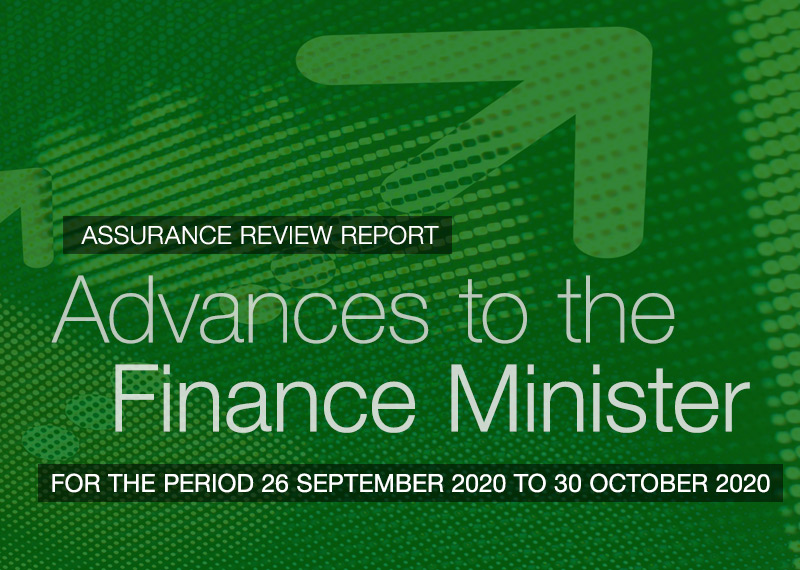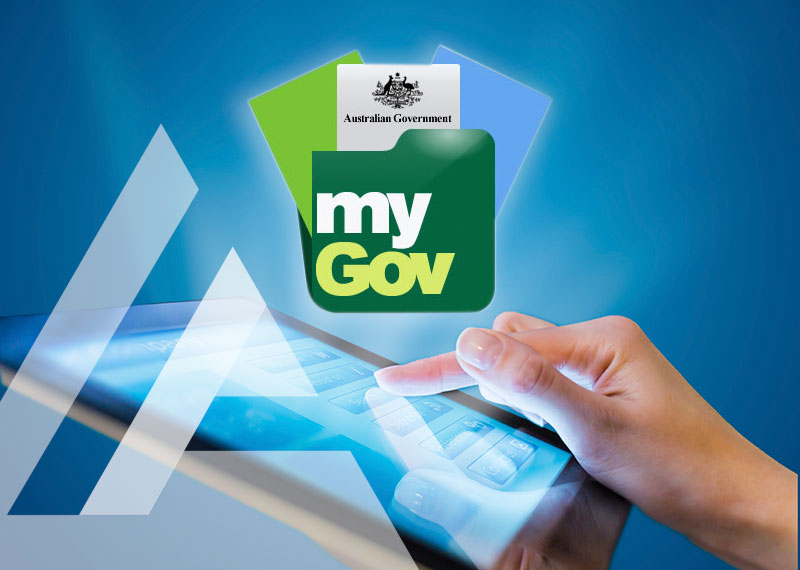Browse our range of reports and publications including performance and financial statement audit reports, assurance review reports, information reports and annual reports.
First Home Saver Accounts are a new initiative to assist eligible Australians to save for their first home through a combination of government contributions and low taxes, in superannuation style savings accounts with account providers. The campaign will set the context for the new initiative and raise awareness. The campaign elements are to articulate the eligibility criteria, individual obligations, entitlements and accessibility rules, as well as explain the respective roles and responsibilities of account providers and government administrators and regulators.
The campaign is a community awareness campaign designed to raise awareness of Australia's quarantine laws and of the particular risks of bringing foreign items into Australia.
The purpose of this campaign is to inform people of the Child Care Tax Rebate.
The report objective is to provide the Auditor-General’s independent assurance over the status of 30 selected Major Projects, as reflected in the Statement by the Chief Executive Officer Defence Materiel Organisation (DMO), and the Project Data Summary Sheets prepared by the DMO, in accordance with the Guidelines endorsed by the Joint Committee of Public Accounts and Audit.
The Auditor-General responded on 28 September 2023 to correspondence from Senator the Hon Michaelia Cash dated 5 September 2023, requesting that the Auditor-General conduct an investigation to assess the adequacy of data collection, performance monitoring and other governance arrangements under the National Legal Assistance Partnership (NLAP) in the Attorney-General’s portfolio.
Please direct enquiries relating to requests for audit through our contact page.
The Auditor-General responded on 13 December 2021 to correspondence from Senator Jordon Steele-John dated 17 November 2021, requesting that the Auditor-General conduct an investigation to examine the administration of a Pharmaceutical Benefits Scheme program for opioid dependency treatment.
Please direct enquiries relating to requests for audit through our contact page.
The Auditor-General responded on 12 May 2020 to correspondence from Ms Zali Steggall OAM, MP dated 23 April 2020, requesting that the Auditor-General consider an audit of the Australian Government’s Underwriting New Generation Investment (UNGI) program. The Auditor-General provided a follow-up response to Ms Steggall OAM, MP on 24 July 2020.
Please direct enquiries relating to requests through our contact page.
The Auditor-General responded on 26 April 2019 to correspondence from Dr Kerryn Phelps AM, MP and co-signatories dated 10 April 2019, requesting that the Auditor-General conduct an investigation to examine campaign advertising.
Please direct enquiries relating to requests through our contact page.
The Auditor-General responded on 18 May 2018 to correspondence from Senator Whish-Wilson dated 24 April 2018, requesting that the Auditor-General conduct an audit of the implementation of declaration of interest and conflict of interest policies by the Australian Securities and Investments Commission (ASIC).
Please direct enquiries through our contact page.
The aim of the May to July 2010 burst of campaign advertising for the National Security Campaign is to build upon previous phases of the campaign through continuing to remind Australians to remain vigilant and to report possible signs of terrorism related activity to the National Security Hotline on 1800 1234 00.
The campaign for the National STI Prevention Program is designed to inform young Australians aged 15-29 years about the transmission, symptoms, treatment and prevention of STIs, and encourage safe sexual behaviour to contribute to a reduction in the prevalence of sexually transmissible infections among this age group.
The overall aim of the National Drugs Campaign is to contribute to a reduction in the uptake of illicit drugs among young Australians, by raising awareness of the harms associated with drug use and encouraging and supporting decisions not to use. It is also intended to encourage young people using methamphetamines to reconsider their use and direct them to relevant support, counselling and treatment services.
The Digital Switchover campaign aims to provide all Australians with a smooth transition from analogue to digital television. The first region to switch over to digital television will be Mildura/Sunraysia on 30 June 2010 and the second region will be Regional South Australia & Broken Hill on 15 December 2010. Tailored local communications will be launched in Regional South Australia and Broken Hill from 28 March 2010, and they will include the date of digital switchover for that region.
The overall aim of the National Drugs Campaign is to contribute to a reduction in the uptake of illicit drugs among young Australians, by raising awareness of the harms associated with drug use and encouraging and supporting decisions not to use. It is also intended to encourage young people using methamphetamines to reconsider their use and direct them to relevant support, counselling and treatment services.
The overall aim of the campaign activity is to contribute to a reduction in the uptake and prevalence of smoking among young Australians.
The Digital Switchover campaign aims to provide all Australians with a smooth transition from analogue to digital television. Phase Two is a two-pronged approach of multi-regional communications targeting the broader Australian population, combined with further targeted communications in each switchover area prior to the analogue signals being switched off. The first region to switch over is the Mildura/Sunraysia region on the 30 June 2010.Tailored local communications including NESB materials will be targeted to this region from January 2010 untiltwo weeks past the switchover date.
This campaign aims to attract the right people to sustain and enhance Defence capability by generating enough enquiries to successfully meet Australian Defence Force's (ADF) recruitment target. The campaign has been developed to position the ADF as a preferred employer among the target audience by establishing the brand positions of each of the services and by advertising a range of positions offered in the ADF.
The Digital Switchover Campaign aim is to provide all Australians with a smooth transition from analogue to digital television by 31 December 2013. The second phase of the campaign aims to maintain awareness levels and drive conversion, especially in areas where the switchover is imminent, while also ensuring that that those households who have not yet converted to digital are aware of what will happen if they don't.
The Summer 2009-10 National Skin Cancer Awareness Campaign's aim is to educate young Australians about the seriousness of, and their susceptibility to, skin cancer and to increase their adoption of the five key sun protection behaviours (Wearing a hat, staying in the shade, applying sunscreen, wearing sunglasses and sun protective clothing).
The National Binge Drinking Campaign's objectives are to raise awareness of the harms and costs to young people, their families, communities and society associated with drinking to intoxication, to encourage young people and their parents to question the acceptability and impact of intoxicated behaviour, to highlight the influence that parental attitudes to alcohol misuse and adult behaviour and drinking to intoxication can have on others and provide referral and support information for those who recognise a need to seek help.
This campaign forms part of the main Defence Force Recruitment (July-December 2009) Campaign and is intended to raise awareness of a diverse range of jobs available in the Air Force.
The campaign's objective is to raise awareness and understanding of the Secure and Sustainable Pension reforms announced in the 2009-10 Budget measures, and in particular how they relate to the individual circumstances of current pension recipients.
The ABHI campaign is an information campaign, largely in cooperation with other states (excl Victoria) which promotes improved public health and reduced incidence of chronic disease. The campaign aims to update public perceptions on lifestyle choices and risk factors leading to obesity and resultant disease. It is anticipated that people will take positive action to be more active and modify their diet, leading to a reduction in instances of diseases. This is the second phase of advertising for the campaign.
The campaign is intended to inform employers and members of the Reserves of their rights and obligations, and raise awareness and understanding of the benefits associated with the employment of Reserves.
The campaign aims to educate the public that people living with Alzheimer's and/or Dementia are at risk of becoming a missing person, and the public can help by 'keeping an eye out' for these people who may affected by memory loss and while in a state of confusion, may not be able to find their way home or remember who they are. The campaign also aims to drive people to seek further information, via the website and call centre.
The campaign's objective is to inform job seekers and employers, for whom English is not a convenient language, of the change from the Job Network system to Job Services Australia.
The campaign is designed to raise awareness and prompt call to action in Micro and SME businesses eligible for the Small and General Business Tax Break (BTB).
The campaign is designed to raise awareness and prompt call to action in Micro and SME businesses eligible for the Small and General Business Tax Break (BTB).
To inform jobseekers of the change from the Job Network system to Job Services.
The campaign's objective is to inform jobseekers of the change from the Job Network system to Job Services Australia.
This campaign aims to attract the right people to sustain and enhance Defence capability by generating enough enquiries to successfully meet Australian Defence Force's (ADF) recruitment target. The campaign has been developed to position the ADF as a preferred employer among the target audience by establishing the brand positions of each of the services and by advertising a range of positions offered in the ADF.
The campaign's objective is to inform jobseekers of the change from the Job Network system to Job Services Australia.
To inform jobseekers of the change from the Job Network system to Job Services Australia.
The campaign's objective is to inform jobseekers of the change from the Job Network system to Job Services Australia.
The communications campaign is to encourage people to lodge at an 07/08 tax return and to update their address and direct deposit details with the ATO and to manage expectations about the arrival date for the funds, and what to do if the monies are not received.
This campaign aims to attract the right people to sustain and enhance Defence capability by generating enough enquiries to successfully meet Australian Defence Force's recruitment target. The commercials advertise a variety of specific Army positions and have been developed to enhance and support the current suite of Army commercials.
The campaign's objective is to promote the National Security Hotline (NSH) and remind Australians to be vigilant and report possible signs of terrorism to the NSH.
The campaign's objectives are to encourage people, for whom English is not a convenient language, to lodge an 07/08 tax return and to update their address and direct deposit details with the ATO, to manage expectations about the arrival date for the payments and provide information about what to do if the payments are not received.
The campaign's objectives are to encourage people, for whom English is not a convenient language, to lodge an 07/08 tax return and to update their address and direct deposit details with the ATO, to manage expectations about the arrival date for the payments and provide information about what to do if the payments are not received.
Electronic Medicare claiming allows patients to claim their Medicare rebate electronically at the doctor's surgery. The purpose of the campaign is to increase public awareness and use of this scheme and to encourage medical service providers such as doctor's surgeries to take up the scheme.
The campaign for the National STI Prevention Program is designed to inform young Australians aged 15-29 years about the transmission, symptoms, treatment and prevention of STIs, and encourage safe sexual behaviour to contribute to a reduction in the prevalence of sexually transmissible infections among this age group.
This campaign aims to attract the right people to sustain and enhance Defence capability by generating enough enquiries to successfully meet Australian Defence Force's recruitment target. The radio commercials advertise the Navy's technical trade positions and have been developed to enhance and support the current suite of Navy commercials.
As part of its recruitment activities, the Army has a sponsorship arrangement with the AFL to capitalise on the AFL's strong following amongst the 17-24 age groups, which is the Defence Force Recruiting target market. The sponsorship saw the development of the AFL Army Award, which recognises and rewards the common values of the Army and the AFL. The advertising campaign is designed to promote the sponsorship and encourage AFL supporters to vote for nominated players for the AFL Army Award, with the overall objective of attracting members of the target audience to consider a career in the Australian Defence Force.
The Digital Switchover campaign aims to provide all Australians with a smooth transition from analogue to digital television by 31 December 2013. The first phase of this campaign aims to raise awareness and provide general information to people about the Digital Switchover. This phase includes the introduction of a labelling scheme, to identify whether TVs are digital ready or require a set top box.
This campaign aims to attract the right people to sustain and enhance Defence capability by generating enough enquiries to successfully meet Australian Defence Force's recruitment target. The radio commercials have been developed to position ADFA as a preferred study option among the target audience.
The campaign's objectives are to encourage people, for whom English is not a convenient language, to lodge an 07/08 tax return and to update their address and direct deposit details with the ATO, to manage expectations about the arrival date for the payments and provide information about what to do if the payments are not received.
The campaign's objectives are to encourage people to lodge an 07/08 tax return and to update their address and direct deposit details with the ATO, to manage expectations about the arrival date for the payments and provide information about what to do if the payments are not received.
The objectives of the campaign are to increase knowledge and awareness of the Education Tax Refund, the need to keep receipts, eligibility requirements, and how to claim the refund, with the overall objective of encouraging eligible Australians to make a claim for a rebate.
The Anti-Money Laundering and Counter-Terrorism Financing Act 2006 (AML/CTF Act) forms part of a legislative package that implements reforms to Australia's anti-money laundering and counter-terrorism financing regulatory regime. There are elements of the Act that did not commence until December 2008. This campaign is focused on targeted public awareness regarding the new elements of the Act.
This campaign aims To attract the right people to sustain and enhance Defence capability by generating enough enquiries to successfully meet Australian Defence Force's (ADF) recruitment target. The Navy TVC has been developed to enhance and support the current suite of Navy commercials.
This campaign aims to attract the right people to sustain and enhance Defence capability by generating enough enquiries to successfully meet Australian Defence Force's (ADF) recruitment target. The campaign has been developed to position the ADF as a preferred employer among the target audience by establishing the brand positions of each of the services and by advertising a range of positions offered in the ADF.
The campaign's objectives are to raise awareness of the harms and costs to young people, their families, communities and society associated with drinking to intoxication, to encourage young people and their parents to question the acceptability and impact of intoxicated behaviour, to highlight the influence that parental attitudes to alcohol misuse and adult behaviour and drinking to intoxication can have on others and provide referral and support information for those who recognise a need to seek help.
The campaign aims to promote the role of travel advisories and encourage Australians to use them as a routine part of overseas travel preparation. It seeks to reduce the number of Australians encountering difficulties overseas, and by leading more Australians to use safe travel tools, the campaign aims to improve the Government's ability to be able to communicate with and assist Australians in the event of a consular emergency.
The objective of the Liquids Aerosols and Gels (LAGS) Trials is to assess the capability of various screening technologies to detect explosives in LAGs, with the ultimate objective of providing information to the Australian Government on the effectiveness and efficiency of the screening technology (in aviation security). The proposed public awareness strategy aims to raise awareness of the Trials amongst the travelling public, encourage their participation, and inform them of their rights and obligations during the Trials.
The ABHI campaign is an information campaign, largely in cooperation with other states (excl Victoria) which promotes improved public health and reduced incidence of chronic disease. The campaign aims to update public perceptions on lifestyle choices and risk factors leading to obesity and resultant disease. It is anticipated that people will take positive action to be more active and modify their diet, leading to a reduction in instances of diseases.
The objective of the Liquids Aerosols and Gels (LAGS) Trials is to assess the capability of various screening technologies to detect explosives in LAGs, with the ultimate objective of providing information to the Australian Government on the effectiveness and efficiency of the screening technology (in aviation security). The proposed public awareness strategy aims to raise awareness of the Trials amongst the travelling public, encourage their participation, and inform them of their rights and obligations during the Trials.
In February 2008, the Government agreed its Climate Change Policy Framework built on three pillars: reducing Australia's greenhouse gas emissions; adapting to climate change that we can't avoid; and helping to shape a global solution. Phase One of the campaign is the Householder Action advertising campaign, designed to empower householders to take action on climate change and to inform the community about measures for compensating low income households.
The Auditor-General responded on 11 December 2019 to correspondence from Senator Kimberley Kitching dated 14 November 2019, requesting that the Auditor-General consider undertaking proposed audits of parliamentary departments listed in the work program.
Please direct enquiries through our contact page.
The audit objective was to assess whether the Department of Industry, Innovation and Science has effectively and efficiently administered the collection of North West Shelf royalty revenues.
Please direct enquiries relating to reports through our contact page.
The objective of this audit was to assess the extent to which entities’ establishment and use of ICT related procurement panels and arrangements supported the achievement of value for money outcomes.
Please direct enquiries through our contact page.
The objective of the audit was to assess whether appropriate steps were taken to protect the Commonwealth’s interests and obtain value for money in respect to the:
- approval of $1.5 billion in Commonwealth funding for stage one of the East West Link project, and the June 2014 payment of $500 million of this funding; and
- approval of $1.5 billion in Commonwealth funding for stage two of the East West Link project, and the June 2014 payment of $1 billion of this funding.
Please direct enquiries relating to reports through our contact page.
The objective of this audit was to assess whether agencies had effectively administered credit cards, including having complied with legislative and internal requirements.
The objective of the audit was to assess the ATO's administration of CGT compliance in the individuals market segment. The focus of the audit was the ATO's administration of compliance by individuals with respect to the two most common CGT events: real property and share disposals. The Australian National Audit Office (ANAO) identified three key areas for review:
- governance – the corporate planning and reporting arrangements relevant to the administration of CGT compliance in the individuals market segment, including how these are integrated with the ATO's overall approach to managing CGT;
- identifying and assessing compliance risks – the mechanisms and strategies used to identify and assess CGT compliance risks in the individuals market segment; and
- compliance activities – the products and processes used to manage CGT compliance in the individuals market segment.
The audit objective was to assess the effectiveness of the Department of the Environment and Energy’s design of the Threatened Species Prospectus.
Please direct enquiries through our contact page.
The objectives of the audit were to:
- examine Customs' management of the CMR project; and
- determine whether the ICS and CCF met:
- project and operational objectives; and
- user capability and functionality requirements.
Particular emphasis was given to the following areas:
- the project management framework that supported the CMR project;
- implementation arrangements for the ICS; and
- ongoing operational arrangements.
After this audit commenced, Customs engaged Booz Allen Hamilton to undertake a separate review of the ICS. The purpose of that review was to provide Customs with a forward looking report on the lessons to be learned from the implementation of the ICS, its current status and the opportunities to enhance benefits for both Government and industry. The ANAO consulted closely with the Booz Allen Hamilton team and is supportive of the recommendations in their report, which was released in May 2006. The review made thirteen recommendations relating to the ongoing management and governance of the Cargo Management Re-engineering Program at both strategic and tactical levels.
The audit sought to assess how well the Australian Taxation Office (ATO) manages aggressive tax planning. We did this by exploring the nature of aggressive tax planning and the ATO's approach to its management. In the latter context, we looked at:
- the ATO's previous experience with aggressive tax planning and action on previous significant external reviews, particularly dealing with mass marketed investment schemes;
- strategy and operations, intelligence gathering and use; and the identification and management of promoters given their significant role in aggressive tax planning.
The Auditor-General responded on 2 May 2022 to correspondence from Senator Rex Patrick dated 5 April 2022, requesting that the Auditor-General conduct an investigation to examine the process in making statutory and other senior appointments across the whole government over the six months preceding the application of caretaker conventions prior to the 2022 Federal election.
Please direct enquiries relating to requests for audit through our contact page.
The Auditor-General responded on 10 September 2021 to correspondence from Ms Madeleine King MP and Senator the Hon Kristina Keneally dated 26 August 2021, requesting that the Auditor-General conduct an investigation to examine the Beetaloo Cooperative Drilling Program because of probity concerns.
Please direct enquiries relating to requests for audit through our contact page.
The Digital Switchover campaign aims to provide all Australians with a smooth transition from analogue to digital television. Phase Two is a two pronged approach of multi-regional communications targeting the broader Australian population, combined with further targeted communications in each switchover area prior to the analogue signals being switched off. The first region to switchover is the Mildura/Sunraysia region on the 30 June 2010. Tailored local communications will be targeted to this region from January 2010 until 2 weeks past the switchover date.
The campaign's objective is to raise awareness and understanding of the Secure and Sustainable Pension reforms announced in the 2009-10 Budget measures, and in particular how they relate to the individual circumstances of current pension recipients for whom English is not a convenient language.
The campaign's objective is to inform job seekers and employers of the change from the Job Network system to Job Services Australia.
The campaign for the National STI Prevention Program is designed to inform young Australians aged 15-29 years about the transmission, symptoms, treatment and prevention of STIs, and encourage safe sexual behaviour, to contribute to a reduction in the prevalence of sexually transmissible infections among this age group.
The campaign's objectives are to raise awareness of the harms and costs to young people, their families, communities and society associated with drinking to intoxication, to encourage young people and their parents to question the acceptability and impact of intoxicated behaviour, to highlight the influence that parental attitudes to alcohol misuse and adult behaviour and drinking to intoxication can have on others and provide referral and support information for those who recognise a need to seek help.
The objectives of the campaign are to increase knowledge and awareness, among people for whom English is not a convenient language, of the Education Tax Refund, the need to keep receipts, eligibility requirements, and how to claim the refund, with the overall objective of encouraging eligible Australians to make a claim for a rebate.
This phase of the campaign (phase two) is designed to communicate information and raise awareness about the First Home Owners Boost amongst potential first home buyers for whom English is not a convenient language.
The objectives of the campaign are to increase knowledge and awareness of the Education Tax Refund, the need to keep receipts, eligibility requirements, and how to claim the refund, with the overall objective of encouraging eligible Australians to make a claim for a rebate.
This phase of the campaign (phase two) is designed to communicate information and raise awareness about the First Home Owners Boost amongst potential first home buyers, through limited media (print/ radio/ digital/ outdoor advertisement) supported by marketing collateral.
The campaign's objectives are to raise awareness, among those for whom English is not a convenient language, of the harms and costs to young people, their families, communities and society associated with drinking to intoxication, to encourage young people and their parents to question the acceptability and impact of intoxicated behaviour, to highlight the influence that parental attitudes to alcohol misuse and adult behaviour and drinking to intoxication can have on others and provide referral and support information for those who recognise a need to seek help.
The Economic Security Strategy (ESS) campaign is intended to inform the community of aspects of the Australian Government's response to the global financial crisis. This component of the campaign is designed to raise awareness, among those for whom English is not a convenient language, of the financial assistance available, in the form of lump sum payments, and of access and eligibility requirements.
The ABHI campaign is an information campaign, largely in cooperation with other states (excl Victoria) which promotes improved public health and reduced incidence of chronic disease. This component of the campaign takes a culturally relevant approach and includes advertising content and messages delivered through Indigenous media channels.
The Economic Security Strategy (ESS) campaign is intended to inform the community of aspects of the Australian Government's response to the global financial crisis. This campaign is designed to raise awareness of the financial assistance, in the form of lump sum payments, including access and eligibility requirements. Phase One is targeted at over five million pensioners, carers, seniors, people with a disability, veterans and families.
The ABHI campaign is an information campaign, largely in cooperation with other states (excl Victoria) which promotes improved public health and reduced incidence of chronic disease. The campaign aims to update public perceptions on lifestyle choices and risk factors leading to obesity and resultant disease. It is anticipated that people will take positive action to be more active and modify their diet, leading to a reduction in instances of diseases.
The objective of this audit was to assess whether the design and administration of the Adult Migrant English Program was effective.
Please direct enquiries through our contact page.
The audit objective was to examine the effectiveness of the Department of Human Services’ administration of the Australian Childhood Immunisation Register.
Please direct enquiries relating to reports through our contact page.
The audit objective was to assess the effectiveness to date of the Department of Defence’s procurement and contract management of the Offshore Patrol Vessel program.
Please direct enquiries through our contact page.
The Auditor-General responded on 10 March 2021 to correspondence from Senator the Hon Kristina Keneally dated 11 February 2021, requesting that the Auditor-General consider conducting a performance audit of the Safer Communities Fund and the awarding of discretionary grants from the proceeds of crime.
The Auditor-General provided a follow-up response to Senator Keneally on 14 April 2021.
Please direct enquiries relating to requests for audit through our contact page.
The Auditor-General responded on 9 September 2020 to correspondence from Ms Zali Steggall OAM, MP dated 24 August 2020, requesting that the Auditor-General consider an audit of the decisions and processes supporting the Commonwealth’s selection of 15 ‘major projects’ to fast-track under the Environment Protection and Biodiversity Conservation Act 1999.
Please direct enquiries relating to requests through our contact page.
The Auditor-General responded on 23 April 2020 to correspondence from Senator Katy Gallagher dated 31 March 2020, requesting that the Auditor-General develop an audit program related to the Australian Government’s economic response to COVID-19.
Please direct enquiries relating to requests for audit through our contact page.
The Auditor-General has responded to a request from Mr Pat Conroy MP dated 28 September 2018, asking that the Auditor-General conduct an audit of aspects of the Government advertising campaign: Powering Forward.
Please direct enquiries through our contact page.
The objective of this audit was to examine the effectiveness of the National Indigenous Australians Agency’s management of provider fraud and non-compliance risks.
Please direct enquiries through our contact page.
The objective of the audit was to assess the Moorebank Intermodal Company’s achievement of value for money and management of probity in its operations and procurement activities.
Please direct enquiries through our contact page.
The objective of the audit was to assess the effectiveness of Australian Government-funded aged care services delivered to Aboriginal and Torres Strait Islander people.
Please note: Aboriginal and Torres Strait Islander people should be aware that this website may contain images of deceased people.
Please direct enquiries relating to reports through our contact page.
The objective of the audit was to assess the effectiveness of the Australian Taxation Office in achieving revenue commitments established under specific Budget-funded compliance measures.
Please direct enquiries relating to reports through our contact page.
The objective of the audit was to examine whether selected entities implemented agreed ANAO performance audit, the Joint Committee of Public Accounts and Audit, and other parliamentary committee recommendations.
Please direct enquiries through our contact page.
The audit objective was to assess the effectiveness of the Department of Home Affairs’ administration and regulation of critical infrastructure protection policy.
Please direct enquiries through our contact page.
The objective of the audit was to assess whether the Australian Communications and Media Authority (ACMA) had complied with gifts, benefits and hospitality requirements.
Please direct enquiries through our contact page.
The objective of the audit was to assess the effectiveness of the Attorney-General’s Department’s administration of the Indigenous Legal Assistance Programme.
Please direct enquiries relating to reports through our contact page.
The audit objective was to assess the establishment and administration of the Australian Border Force’s framework to ensure the lawful exercise of powers in accordance with applicable legislation.
Please direct enquiries relating to reports through our contact page.
The audit objective was to assess whether the Department of the Prime Minister and Cabinet has effectively established and implemented the Indigenous Advancement Strategy to achieve the outcomes desired by government.
Please note: Aboriginal and Torres Strait Islander people should be aware that this website may contain images of deceased people.
Please direct enquiries relating to reports through our contact page.
The audit objective was to assess the effectiveness of the Department of Employment and the Department of Education and Training's administration of the Shared Services Centre to achieve efficiencies and deliver value to its customers.
Please direct enquiries relating to reports through our contact page.
The Auditor-General undertook a limited assurance review of the Department of Finance’s reporting and administration of the Advances to the Finance Minister (AFM) for the Period 26 September 2020 to 30 October 2020.
Please direct enquiries through our contact page.
The audit on the Defence Project Management of the SDSS Upgrade Project examined Defence project management procedures and practices in the information management systems domain.
The objective of the audit was to assess the effectiveness of the Department of Human Services’ implementation of myGov as at November 2016.
Please direct enquiries relating to reports through our contact page.
The objective of this audit was to assess the effectiveness of the Department of Health’s approach to health provider compliance.
Please direct enquiries through our contact page.
The objective of this audit was to assess the effectiveness of the Australian Energy Regulator’s regulation of energy markets.
Please direct enquiries through our contact page.
The Auditor-General responded on 6 October 2020 to correspondence from Senator Murray Watt dated 18 September 2020, requesting that the Auditor-General conduct an investigation to examine the conduct of Senator Pauline Hanson, relevant government ministers — particularly the Minister for Sport, Senator the Hon Richard Colbeck and the Minister for Infrastructure, Transport and Regional Development, the Hon Michael McCormack MP — and the relevant departments in relation to the announcement of $23 million in Commonwealth Government funding for the Victoria Park stadium in Rockhampton. Senator Watt also requested that the Auditor-General conduct an investigation to examine the assessment process of the project undertaken by the relevant government ministers and their departments before awarding the $23 million grant.
Please direct enquiries relating to requests through our contact page.
The Auditor-General responded on 22 November 2019 to correspondence from Senator Katy Gallagher dated 25 October 2019, requesting that the Auditor-General conduct an investigation to examine government spending on external contractors and consultants.
Please direct enquiries relating to requests for audit through our contact page.
The audit objective was to assess the effectiveness of the Department of Health, Disability and Ageing’s administration of the Future Fit Program.
Please direct enquiries through our contact page.
The objective of the audit was to examine the effectiveness of the Department of Defence’s administration of contractual obligations to maximise Australian industry participation.
Please direct enquiries through our contact page.
The audit examined the efficiency and effectiveness of the Department of Employment and Workplace Relations' implementation and subsequent management of the Indigenous Employment Policy. The audit sought to determine whether, in relation to the Indigenous Employment Policy, the department had:
- developed appropriate planning processes and performance measures;
- monitored and reported performance results;
- implemented appropriate evaluation and review mechanisms;
- conducted effective marketing and promotion; and
- identified enhancements and addressed performance issues.
The objective of this audit was to assess whether DFAT had effective processes for issuing passports in Australia. In particular, the audit focussed on whether DFAT had effective strategies for managing passport services; provided quality client service; and had effective and secure processes for passport issue to entitled persons.
The Auditor-General responded on 29 March 2019 to correspondence from Ms Cathy McGowan AO MP dated 5 March 2019, requesting that the Auditor-General investigate the conduct of a range of parties in relation to the announcement of grants under Round 3, Building Better Regions Fund.
Please direct enquiries relating to requests through our contact page.
The Auditor-General responded on 21 August 2018 to correspondence from Dr Jim Chalmers MP and Ms Michelle Rowland MP dated 26 July 2018, requesting that the Auditor-General conduct an assurance review of the financial assumptions underpinning the long-term economics of the NBN.
Please direct enquiries through our contact page.
The Auditor-General responded on 20 July 2018 to correspondence from the Hon. Catherine King MP dated 31 May 2018, requesting that the Auditor-General conduct an investigation to examine the circumstances surrounding the listing of afatinib (Giotrif®) on the Pharmaceutical Benefits Scheme (PBS).
Please direct enquiries relating to requests for audit through our contact page.
The audit objective was to assess the effectiveness of the Department of Health and Ageing's administration of health workforce initiatives in rural and remote Australia.
The audit objective was to assess the effectiveness of the Department of Veterans’ Affairs monitoring and implementation of ANAO and internal performance audit recommendations.
Please direct enquiries relating to reports through our contact page.
The audit objective was to assess the effectiveness of Defence’s management of the acquisition of medium and heavy vehicles, associated modules and trailers for the Australian Defence Force.
Please direct enquiries relating to reports through our contact page.
The objective of this report was to provide the Auditor‐General’s independent assurance over the status of the selected Major Projects, as reflected in the Statement by the Secretary of Defence, and the Project Data Summary Sheets (PDSSs) prepared by Defence, in accordance with the Guidelines endorsed by the Joint Committee of Public Accounts and Audit.
The objective of the audit was to assess the effectiveness of the Phoenix Taskforce to combat illegal phoenix activities.
Please direct enquiries through our contact page.
The objective of the audit was to assess the effectiveness of the Australian Taxation Office's administration of the JobKeeper scheme.
Please direct enquiries through our contact page.






























